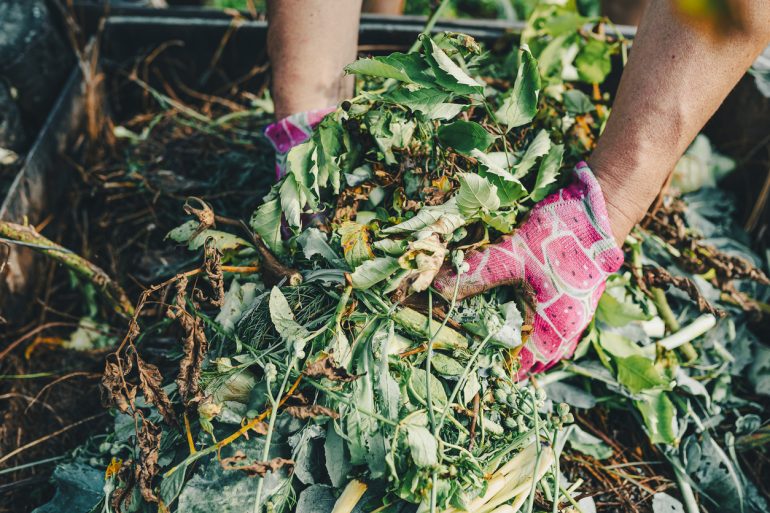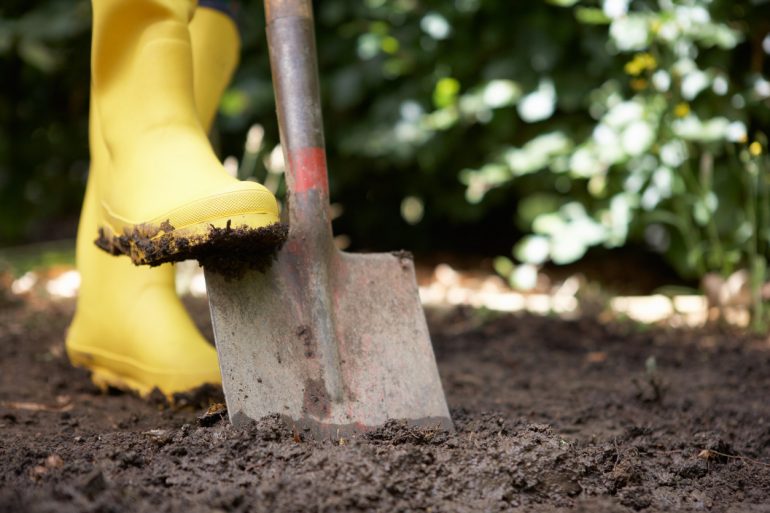Unlike the gardening jobs for January and February which were mostly focused on preparation, March is more of a doing month for UK gardeners. However, there is a word of caution – while the days are getting longer and the clocks spring forward, we can still experience very cold weather and overnight frost, so keep an eye on the forecast and if the weather conditions aren’t right to do what you need to do, wait until they are.
On a cheerier note, you should be looking forward to tackling your list of things to do in the garden in March! It’s all about flowers, fruit and vegetables this month. The early spring flowers like daffodils, crocuses, forsythia and hyacinths will already be creating a vibrant display of colour and you can start sowing your summer bulbs as well as vegetables and herbs.
Whatever the weather, there are plenty of gardening jobs to do in March. Let’s take a look at some of the most important March garden tasks for UK gardeners.
General Garden Maintenance

Compost bin (Photo: Larisa Stefanuyk via iStock)
No matter where you are in the gardening calendar, there will always be things to do in the garden aside from digging, pruning and planting.
March garden tasks include ensuring you have a compost bin. Some councils provide a green bin for organic garden waste but others don’t so you may have to buy – or build – one.
Garden insects are abundant when the weather and soil warms up so you may like to give them a bug box – also known as a bug hotel or insect house – where they can feel safe and warm and lay their eggs. Like compost bins, you can build one or buy one.
If any of your plants need supports, it’s easier to put them in before they grow so they can work through them. Putting them retrospectively after the plants have started to grow can be very tricky and you risk damaging your plants or climbers.
If the grass is dry enough, you can also do your first cut of the year, and if you’ve got a pond don’t forget to feed the fish.
Preparing the Soil

Turning soil (Photo: monkeybusinessimages via iStock)
You’re almost ready to start planting but one of the most important gardening jobs for March is to ensure your soil is ready.
If you didn’t do it in February because the ground was frozen or the soil too wet, now is the time to turn it over and add compost or well-rotted manure. You can also add fertiliser.
One thing that most experienced gardeners advise is not to walk on wet soil because it makes it very compact and it becomes hard for plants to grow.
Planting

Planting flowers (Photo: ronstik via iStock)
This is one of the gardening jobs to do in March that everyone looks forward to!
Vegetables
Kale is usually fine in a frost so you can get that into the ground as soon as the soil is workable. If you haven’t already, veg such as broad beans, artichokes, parsnips, brussel sprouts, cabbage, turnips, spinach and radishes can all be sown in March. You can also plant cauliflower and lettuce, but make sure they’re under a fleece for a few weeks until it’s warmer. Courgettes, lots of chilli varieties and tomatoes can be sown in a greenhouse ready for transfer outside. If you chitted your potatoes in February, you can now plant them along with onions. You can plant a few hardy herbs in the garden such as parsley and chives, but the more tender varieties such as coriander, basil and dill will need to be germinated indoors and not planted outside until around May.
Flowers
Where flowers are concerned, the March garden tasks are split between pruning and planting. It’s important to prune your roses and clematis, deadhead your daffs and hydrangeas and feed your hedges, shrubs and trees with a slow-release fertiliser. Now is the time to plant your summer-flowering bulbs such as the classic begonias, gladioli, dahlias, lilies and freesias as well as exotic-looking cannas. There are lots of stunning cultivars of each so choose the ones that will complement your garden design. You can also sow wildflowers and hardy annuals.
Fruit
To keep them away from slugs, plant strawberries in hanging baskets or in the ground covered with a cloche. You can give your rhubarb plants a boost by giving them feed rich in nitrogen and they should be ready to pull around late April. You can also plant soft fruit such as gooseberries and raspberries.












